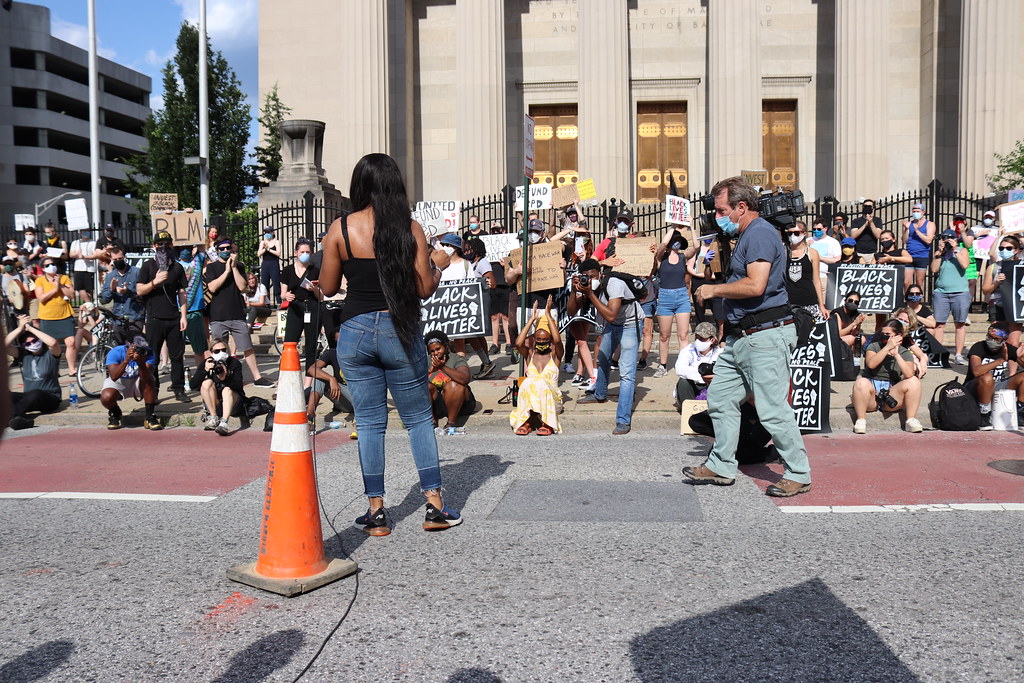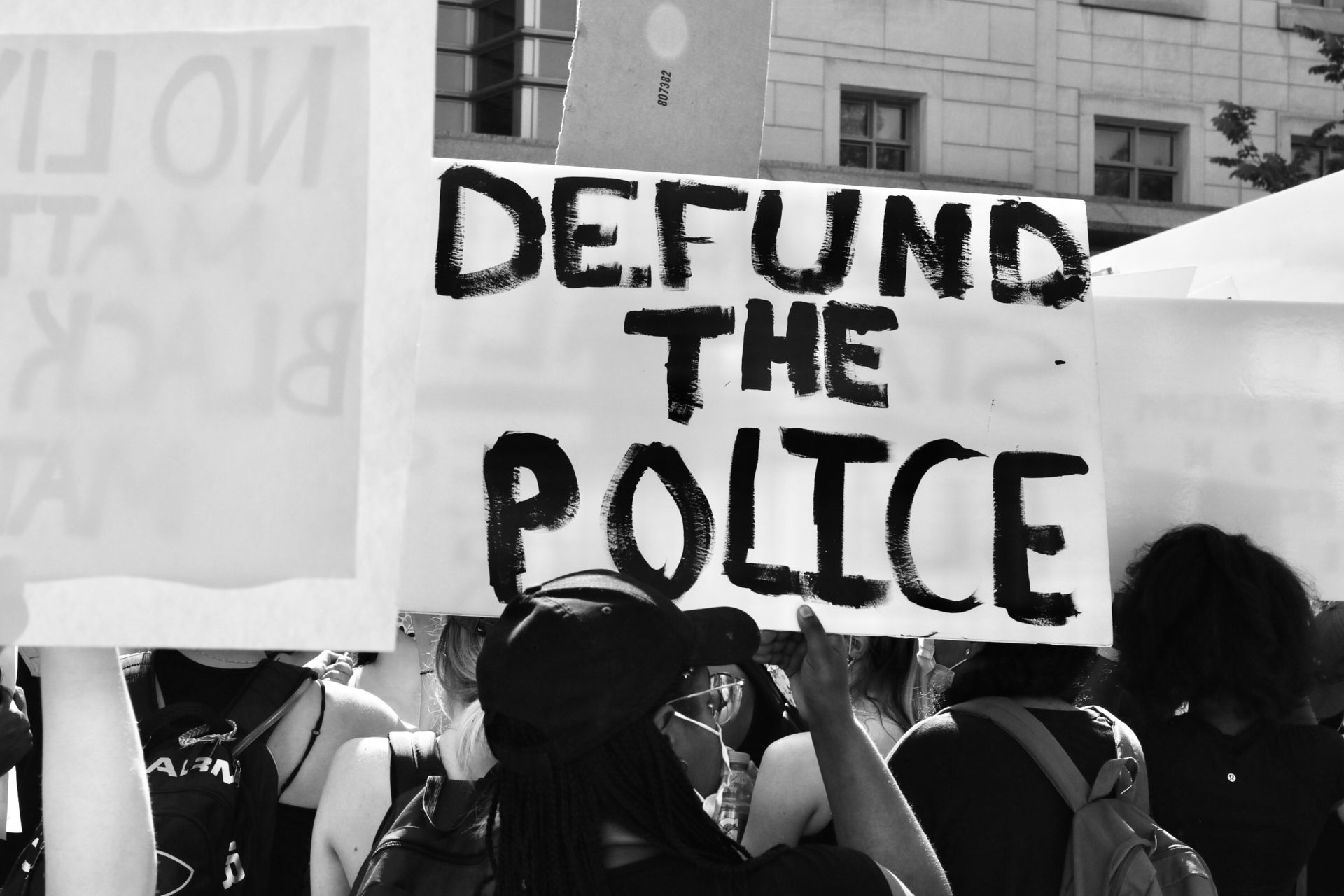After the death of George Floyd and subsequent Black Lives Matter protests, one hardly ever hears about BLM without encountering one of its core tenets: police defunding. 2020 marks the first time that police defunding has entered the mainstream political conversation. And it still appears controversial, illogical, or radical to most people, even for those on the left. Is defunding the police really possible? And in the end, what does it really mean?
As a country, the United States spends more than $100 billion on policing per year, with the sum tripling in the past four decades even as crime has been steadily decreasing. While funding for police departments has been more than ample, most cities in the US are lacking resources for other essential city services and departments such as education and housing. The recent COVID-19 pandemic has exacerbated this crisis, leading to significant budget cuts in education, health services, and the arts, while some police departments have grown or remained unaffected.
To defund the police, cities would cut police budgets and redistribute the resulting funds to other sectors such as healthcare, housing, community development, and first responder care.
According to Black Lives Matter co-founder Patrisse Cullors, a shift from law enforcement funding is crucial towards real change in communities of color, which are disproportionally harmed by over-policing.
“The demand of defunding law enforcement becomes a central demand in how we actually get real accountability and justice,” she says, “because it means we are reducing the ability of law enforcement to have resources that harm our communities.”
The Details: Defunding vs. Abolition
The term “defund” refers to the reduction – not elimination – of police budgets. However, activist groups like Critical Resistance and MPD 150 have called for what is called abolition — a complete dismantling of traditional law enforcement. They argue that the crux of the problem is not minor budget cuts or compromises with local police departments, but rather a fundamental restructuring of policing at its core. They advocate for “non-police solutions to the problems poor people face,” and for pulling funds from police departments. According to the Brookings Institute, the police often escalate conflict during nonviolent calls for service and fails to yield high success rates in solving crime. Instead, this money could go towards mental health support, career and job resources, and other essential resources to build thriving communities.
“By ‘abolish the police,’ I mean building a world where we do not rely on anti-Black, white supremacist institutions of order to regulate society,” said Jenn Jackson, a political scientist at Syracuse University. “This means that alternative forms of order might be embraced, like community care networks and justice structures rooted in restoration rather than punishment.”

Feasibility
However, with the defunding or elimination of law enforcement departments, many wonder if crime will consequently increase, or if communities will become more vulnerable, and many are still are doubtful of the feasibility of defunding. After all, what does a world look like with no law enforcement? While there are no contemporary examples to look to for quantifiable proof, defunding has seen positive results from smaller-scale precedents in previous years.
Related Articles: How BLM Protests Targeted City Governments | Non-Black Minorities Speak About BLM
In 2014 and 2015, the New York Police Department protested the mayor by doing less police work, anticipating that with decreased law enforcement presence, the city would be less safe. However, the city saw a decrease in crime instead. In recent research published by Nature Human Behaviour, criminologists Christopher M. Sullivan and Zachary P. O’Keeffe argue that over-policing for petty crimes can lead to more crime, not less. The NYPD officers who lessen their own workloads may be unwittingly helping us all.
New Possibilities
The slogan of BLM activists across the nation, “defund the police” has received its fair share of attention both from the media and more recently from lawmakers and politicians. For the first time, activists are seeing promises of divestment from police budgets towards community support as well as legislators and elected officials who are proposing budget reductions in law enforcement. In Durham, North Carolina, extra funds requested by the police department for hiring new officers became crucial in raising the minimum wage for part-time and seasonal city workers to $15. In Minneapolis, the City Council unanimously approved a resolution to abolish the police in favor of a community-led public safety system, a decision supported by the community and the Minneapolis teachers union.
According to Kumar Rao, director of the Justice Transformation Program at the Center for Popular Democracy, the current level of defunding “hasn’t gotten to the scale that we need.” But while there is room for improvement, he still sees hope in many recent changes.
“What’s being put forward in Minneapolis is a wholesale rebuild of a public safety apparatus that can and would exist outside of our traditional concept of policing. That is a very different and unique model.” Rao says.
…71% of whites agree that racism and discrimination are a “big problem” in the United States, and 55% think of the protestors’ anger as fully justified.
Additionally, the pervasiveness and intensity of BLM have led to a watershed in the white perception of race in America. Although the late 2010s marked the supposed ascension of Barack Obama and a “post-racial” America, it is now clear that the national journey towards racial justice is far from over. A recent national poll from Monmouth University shows an unprecedented 71% of whites agree that racism and discrimination are a “big problem” in the United States, and 55% think of the protestors’ anger as fully justified. This is a hopeful sign that may lead to more sincere, open-minded discussions of abolition at a broader scale than ever before.
As a grassroots movement based on achieving long-term legislative change, BLM is still a work in progress. While many may still view defunding the police as a radical reformation of the way we live and interact with law enforcement on a daily basis, that is not necessarily a bad thing. Now more than ever, there are plenty of reasons to look towards defunding as an emerging harbinger of hope as citizens’ safeties are reprioritized and communities’ calls are heard.
Editor’s Note: The opinions expressed here by Impakter.com contributors are their own, not those of Impakter.com. In the Featured Photo: A defund the Police sign at a BLM protest. Photo Credit: Wikimedia Commons











